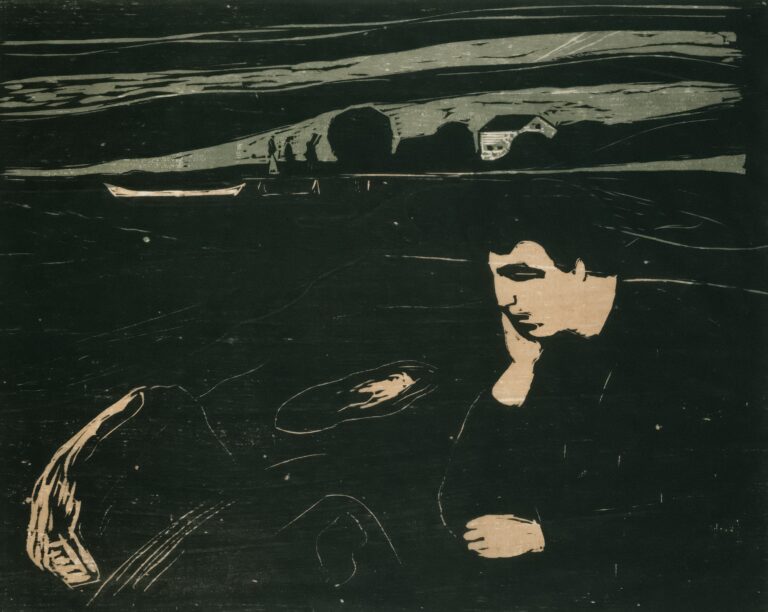What is ROCD? Relationship OCD Symptoms, Causes, & Treatments

Relationship Obsessive-Compulsive Disorder (ROCD) is a psychological condition that affects individuals’ thoughts, emotions, and behaviors related to their romantic relationships.
It involves intrusive thoughts, doubts, and anxieties that can cause significant distress and interfere with the individual’s ability to maintain healthy and satisfying relationships. In this article, we will explore what relationship OCD (ROCD) is, its symptoms, possible causes, and available treatments.
Understanding relationship OCD (ROCD) is crucial for individuals who may be experiencing distressing thoughts and doubts about their relationships and their romantic partner. By recognizing the symptoms, causes, and OCD treatment options, individuals can seek appropriate help and support to navigate their challenges effectively.
Join us as we delve into the world of relationship OCD (ROCD), exploring the intricacies of this disorder, its impact on individuals and relationships, and the strategies that can aid in managing and alleviating its symptoms.
By shedding light on this topic, we aim to provide valuable insights and resources for those seeking a better understanding of ROCD and the available paths to recovery
What is ROCD?
Relationship Obsessive-Compulsive Disorder (ROCD) is a psychological condition characterized by intrusive and persistent thoughts, doubts, and anxieties related to romantic relationships.
Individuals with relationship OCD often have an intense need in seeking reassurance and certainty in their partner’s feelings and intimate relationships, which leads them to engage in compulsive behaviors such as seeking reassurance from their partner, checking their own feelings, or analyzing the relationship excessively.
These intrusive thoughts and doubts can revolve around various aspects, including the partner’s compatibility, physical attraction, emotional connection, or doubts about one’s own feelings. Individuals with relationship OCD may find it challenging to trust their own judgment and constantly question the authenticity and longevity of their romantic relationship.
Relationship OCD can cause significant distress, leading to emotional turmoil, anxiety, and decreased relationship satisfaction. It may also contribute to relationship conflicts and instability.
It’s important to note that Relationship OCD is a recognized psychological condition and not simply relationship doubts that everyone experiences from time to time.
What Are The Symptoms of Relationship OCD?

The symptoms of Relationship Obsessive-Compulsive Disorder (ROCD) can vary from person to person, but some common symptoms include:
Excessive doubt
Individuals with relationship OCD often experience intense and persistent doubts (relationship obsessions) about their romantic relationship. They may question their partner’s love, compatibility, or faithfulness, and doubt their own feelings or attraction.
Intrusive thoughts
ROCD can involve intrusive thoughts that repeatedly enter the person’s mind, causing distress and anxiety. These thoughts may focus on perceived flaws in the relationship or the partner, fears of making the wrong choice, or worries about commitment. Partner focused obsessions are considered among the most common relationship ocd obsessions.
Constant reassurance-seeking
People with relationship OCD may have a strong need for reassurance from their partner or seek reassurance from others about the stability and quality of their relationship. They may constantly seek validation to alleviate their doubts and anxieties.
Relationship comparisons
Relationship OCD can lead individuals to compare their current relationship with past relationships, previous partner or idealized standards. They may constantly analyze and evaluate their partner and relationship, searching for flaws or signs that it doesn’t meet their expectations and partner’s qualities.
Emotional distress
Relationship OCD often causes significant emotional distress, including anxiety, guilt, sadness, or frustration. The preoccupation with relationship doubts can interfere with daily functioning and overall well-being.
Compulsive behaviors
Individuals with relationship OCD may engage in compulsive behaviors to manage their doubts and anxieties. These behaviors can include checking their partner’s actions, seeking reassurance, analyzing their own feelings, or avoiding situations that trigger relationship-related distress such as sexual intimacy.
Constant questioning
Individuals with Relationship OCD may have a relentless urge to question their relationship, their partner, and themselves. They may repeatedly ask themselves if they are truly in love, if their partner is the right one for them, or if they are making a mistake in their choice of partner. This type of questioning is considered among the most common relationship ocd compulsions.
Intense anxiety and distress
Relationship OCD can generate high levels of anxiety and distress, which may manifest as physical symptoms such as racing heart, tightness in the chest, or difficulty breathing. The anxiety is often triggered by relationship-related thoughts and doubts.
Impaired decision-making
Relationship OCD can make it difficult for individuals to make decisions regarding their relationship. They may feel paralyzed by their obsessive doubts, constantly weighing the pros and cons and fearing making the wrong choice. This can lead to indecisiveness, uncertainty and maladaptive beliefs.
Emotional highs and lows
Relationship OCD can result in intense emotional fluctuations. Individuals may experience extreme highs when they feel reassured and convinced of their love and commitment, followed by deep lows characterized by doubts and fears.
Relationship dissatisfaction
People with Relationship OCD may struggle with ongoing dissatisfaction in their relationships, regardless of their partner’s actions or qualities. They may have a persistent feeling that something is missing or that the relationship is not meeting their expectations.
Impact on daily life
ROCD can significantly impact various aspects of an individual’s life. It may consume a significant amount of time and mental energy, interfering with work, social activities, and personal relationships. It can also lead to relationship conflicts and strain.
Remember, while these symptoms are commonly associated with ROCD, it’s essential to consult with a qualified mental health professional for an accurate diagnosis. They can help determine the appropriate treatment plan tailored to the individual’s specific needs and circumstances.
Related Articles – 10 Celebrities with OCD
What Are The Causes of Relationship OCD?

The exact causes of Relationship Obsessive-Compulsive Disorder (ROCD) are not fully understood. However, several factors may contribute to its development:
Biological factors
There may be a genetic or hereditary component to ROCD, as it tends to run in families. Certain imbalances in brain chemicals, such as serotonin, which plays a role in regulating mood and anxiety, may also be involved.
Environmental factors
Childhood experiences and environmental factors can influence the development of ROCD. Traumatic or dysfunctional experiences in past relationships, family conflicts, or a history of abuse may contribute to relationship-related anxieties and obsessions.
Cognitive factors
ROCD is often associated with maladaptive thinking patterns and cognitive biases. Individuals with ROCD may have a tendency to overanalyze, ruminate, and catastrophize about their relationships. They may also have excessively high expectations or rigid beliefs about what a “perfect” relationship should be.
Attachment style
The way individuals form and maintain attachments to their partners can impact the development of ROCD. Insecure attachment styles, such as anxious attachment or fear of abandonment, may increase the likelihood of relationship-related obsessions and doubts.
Pre-existing mental health conditions
Individuals with pre-existing anxiety disorders or obsessive-compulsive disorder (OCD) may be more susceptible to developing ROCD. The presence of these underlying conditions can interact with relationship-related concerns and intensify obsessive thoughts and compulsive behaviors.
It’s important to note that these factors are not definitive causes but rather potential influences. The development of ROCD is likely to be multifactorial and can vary from person to person. Professional evaluation and diagnosis by clinical psychologists are crucial to understanding the individual’s specific circumstances and determining the most appropriate OCD treatment approach.
Love Reading? Checkout our MUST READ OCD books List!
Is ROCD Treatable? How to Recover from ROCD

Yes, Relationship Obsessive-Compulsive Disorder (ROCD) is treatable. Recovery from ROCD often involves a combination of therapy, medication, and self-help strategies.
Here are some common approaches used in the treatment of ROCD:
Cognitive-Behavioral Therapy (CBT)
CBT is a widely used and effective treatment for ROCD. It helps individuals identify and challenge their obsessive thoughts, develop more realistic beliefs about relationships, and reduce compulsive behaviors. CBT also focuses on improving coping strategies and building healthier relationship patterns.
Exposure and Response Prevention (ERP)
Response prevention therapy (ERP) is a specific type of CBT that targets the compulsive behaviors associated with ROCD. ERP therapy involves gradually exposing individuals to situations that trigger their obsessive thoughts while preventing the typical compulsive response. Over time, this helps reduce the anxiety associated with the obsessions and breaks the cycle of ROCD.
Medication
In some cases, medication may be prescribed to help manage the symptoms of ROCD. Selective serotonin reuptake inhibitors (SSRIs), a type of antidepressant, are commonly used to treat OCD and may be beneficial for individuals with ROCD. Medication should be prescribed and monitored by a qualified healthcare professional.
Couples therapy
If the person with ROCD is in a committed relationship, couples therapy can be helpful. It involves both partners attending therapy sessions together to improve communication, address relationship issues, and work through the challenges caused by ROCD.
Self-help strategies
There are several self-help strategies that individuals with ROCD can practice alongside therapy. These may include stress management techniques, mindfulness exercises, journaling, and self-compassion practices. Engaging in self-care activities and maintaining a healthy lifestyle can also support recovery.
Remember that recovery from ROCD can be a gradual process, and it may take time to see significant improvements. It’s important to seek professional help from a mental health provider who specializes in treating OCD or anxiety disorders. They can provide personalized guidance and support based on your specific needs.
Related Articles – How To Treat Arithmomania
Find ROCD Help: Relationship OCD Resources
Here are some resources that can provide information and support for Relationship Obsessive-Compulsive Disorder (ROCD):
International OCD Foundation (IOCDF)
The IOCDF offers a range of resources, including articles, webinars, and support groups, for individuals with ROCD. Their website provides information on treatment options, finding therapists, and support networks.
OCD and Anxiety Treatment Center
The OCD and Anxiety Treatment Center provides specialized treatment for OCD and related disorders, including ROCD. They offer in-person and virtual therapy options. Their website contains educational materials and resources.
NOCD
NOCD is an online platform that offers teletherapy for individuals with OCD, including ROCD. They provide specialized therapy services, an app for tracking symptoms, and a supportive community.
Online OCD Support Groups
There are online communities and support groups dedicated to OCD and related disorders, including ROCD. These platforms provide opportunities to connect with others who understand your experiences and can offer support. Websites like OCD-UKReddit’s OCD community can be helpful resources.
Books and Reading Materials
Several books and publications focus on OCD and relationship-related obsessions. “The Mindfulness Workbook for OCD” by Jon Hershfield and Tom Corboy, and “The Imp of the Mind” by Lee Baer are a couple of examples that provide insights and strategies for managing OCD symptoms.
Remember, these resources can provide valuable information and support, but it’s important to consult with a qualified mental health professional for a proper evaluation and individualized treatment plan.
Related Articles – How to Help Someone With Obsessive Thoughts
Final Thoughts on ROCD
In conclusion, Relationship Obsessive-Compulsive Disorder (ROCD) is a psychological condition characterized by intrusive thoughts, doubts, and preoccupations related to romantic relationships.
Individuals with ROCD experience excessive doubt, intrusive thoughts, constant reassurance-seeking, and emotional distress regarding their relationship. The causes of ROCD are believed to involve a combination of biological, environmental, cognitive, and attachment-related factors.
Fortunately, ROCD is treatable. Treatment options include Cognitive-Behavioral Therapy (CBT), Exposure and Response Prevention (ERP), medication, couples therapy, and self-help strategies. CBT and ERP help individuals challenge and reframe obsessive thoughts, reduce compulsive behaviors, and develop healthier relationship patterns.
Medication, such as SSRIs, may be prescribed to manage symptoms. Couples therapy can address relationship issues and the impact of ROCD on the partnership. Engaging in self-help strategies and accessing supportive resources can also complement professional treatment.
Remember, if you or someone you know is struggling with ROCD, it is important to seek help from a qualified mental health professional who can provide a thorough evaluation and guide you toward an appropriate treatment plan. With proper support and interventions, individuals with ROCD can work towards managing their symptoms, improving relationship satisfaction, and enhancing their overall well-being.





